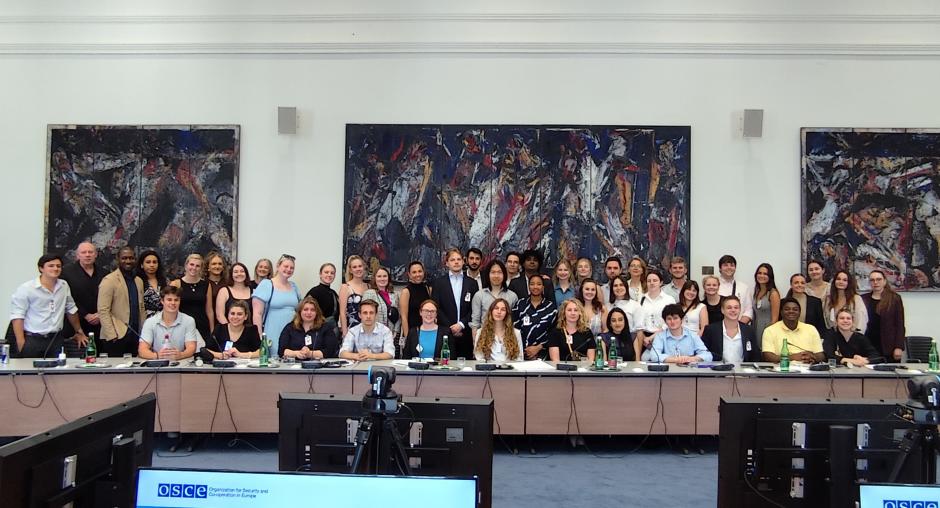Summer school visit to the OSCE focuses on preventing organized crime through whole-of-society approaches

On 18 June, the OSCE Secretariat hosted a group of international students in Vienna, Austria, for a summer school visit on organized crime. The visit provided participants with hands-on experience of the Organization's programmatic activities, offering them a unique opportunity to gain a deeper understanding of the OSCE's comprehensive whole-of-society approach to the prevention of organized crime.
During the visit, the students (27 women, 19 men) explored various aspects of the Organization's work to support participating States in areas such as countering illicit financial flows, asset recovery, and the prevention of youth recruitment into criminal networks. Discussions focused on how women are recruited into organized crime, what roles they play, and how and why they exit these networks, with a special emphasis on the OSCE publication “Understanding the Role of Women in Organized Crime”.
The visit also showcased good practices in gender-sensitive prevention initiatives from across the OSCE area. To supplement the participants’ theoretical knowledge with practical experience, a group activity that prompted the participants to develop a gender-sensitive strategy to prevent youth crime was organized. This also served as a networking opportunity, allowing students to identify potential career paths and areas of interest.
"When it comes to organized crime, prevention is better than cure. By sharing how the OSCE applies its comprehensive approach to security to preventing organized crime, we can ensure that the next generation of policymakers and practitioners have the skills they will need to design and implement gender-sensitive and youth-mainstreamed initiatives to stop young people from becoming involved in criminal activity”, said Martha Stickings, Deputy Head of the Strategic Police Matters Unit in the OSCE Secretariat's Transnational Threats Department.
"Organized crime poses a significant threat to global security, economic stability, and social development. Engaging youth in crime prevention efforts is essential to building resilient communities and fostering a safer future. By investing in education and youth engagement, we lay the foundation for a future free from the pervasive influence of organized crime, ensuring a more secure and prosperous world for generations to come", highlighted Professor Yuliya Zabyelina from the John Jay College of Criminal Justice.
